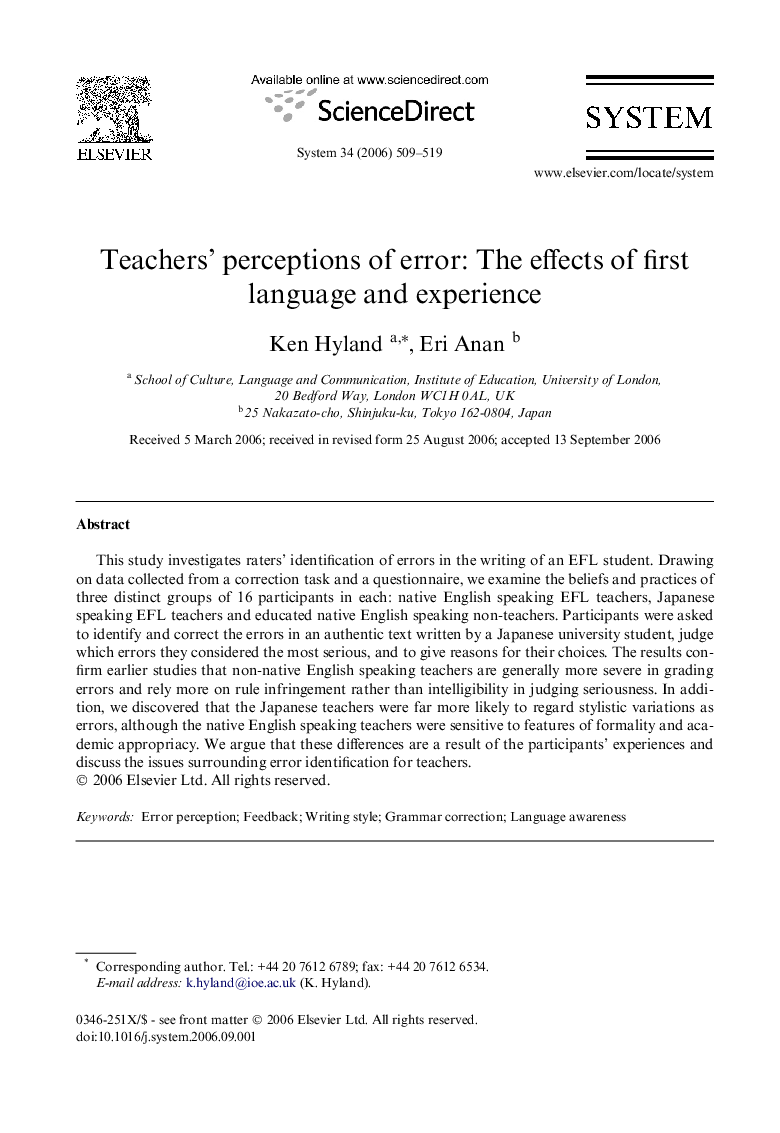| Article ID | Journal | Published Year | Pages | File Type |
|---|---|---|---|---|
| 373838 | System | 2006 | 11 Pages |
This study investigates raters’ identification of errors in the writing of an EFL student. Drawing on data collected from a correction task and a questionnaire, we examine the beliefs and practices of three distinct groups of 16 participants in each: native English speaking EFL teachers, Japanese speaking EFL teachers and educated native English speaking non-teachers. Participants were asked to identify and correct the errors in an authentic text written by a Japanese university student, judge which errors they considered the most serious, and to give reasons for their choices. The results confirm earlier studies that non-native English speaking teachers are generally more severe in grading errors and rely more on rule infringement rather than intelligibility in judging seriousness. In addition, we discovered that the Japanese teachers were far more likely to regard stylistic variations as errors, although the native English speaking teachers were sensitive to features of formality and academic appropriacy. We argue that these differences are a result of the participants’ experiences and discuss the issues surrounding error identification for teachers.
